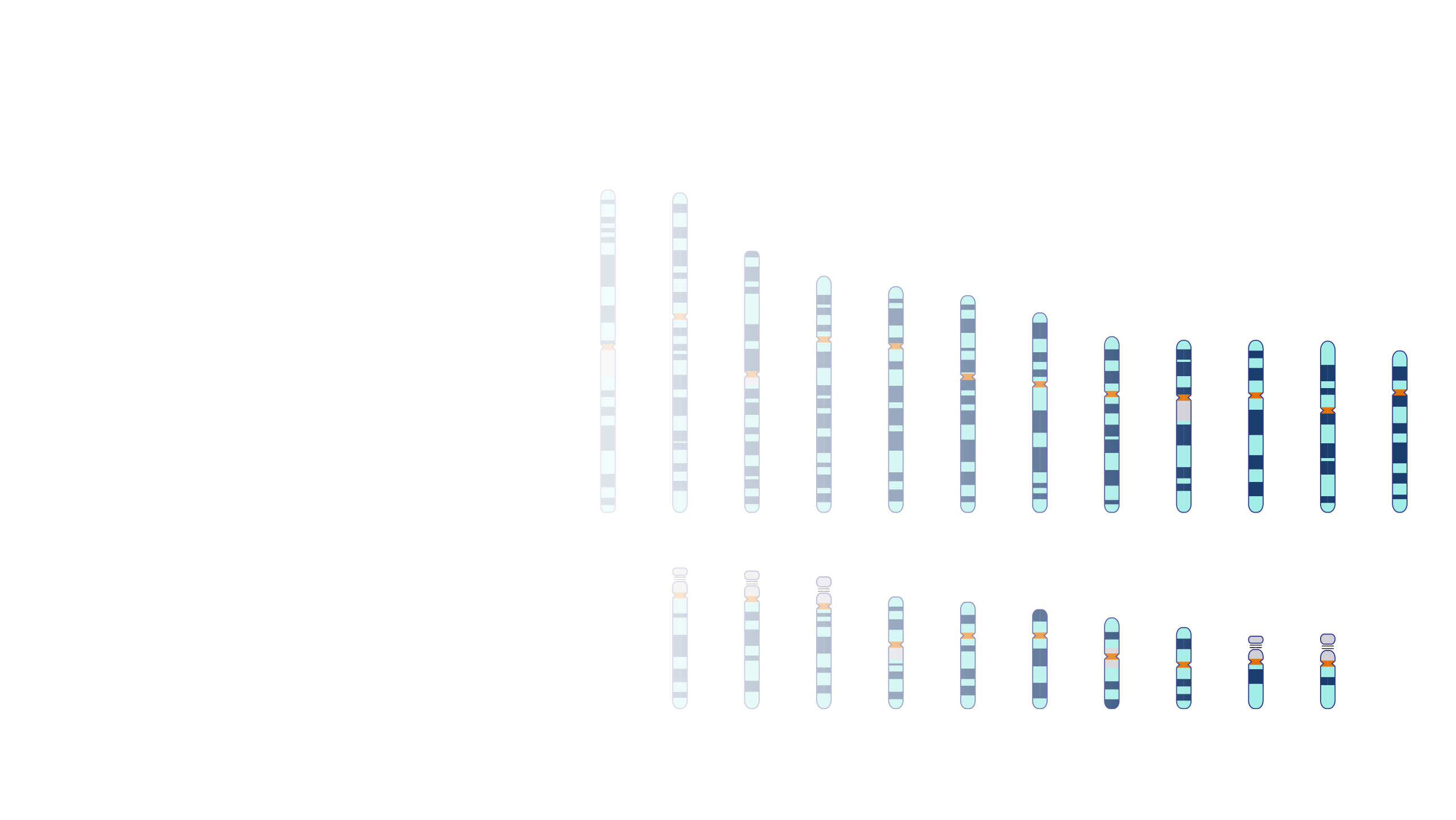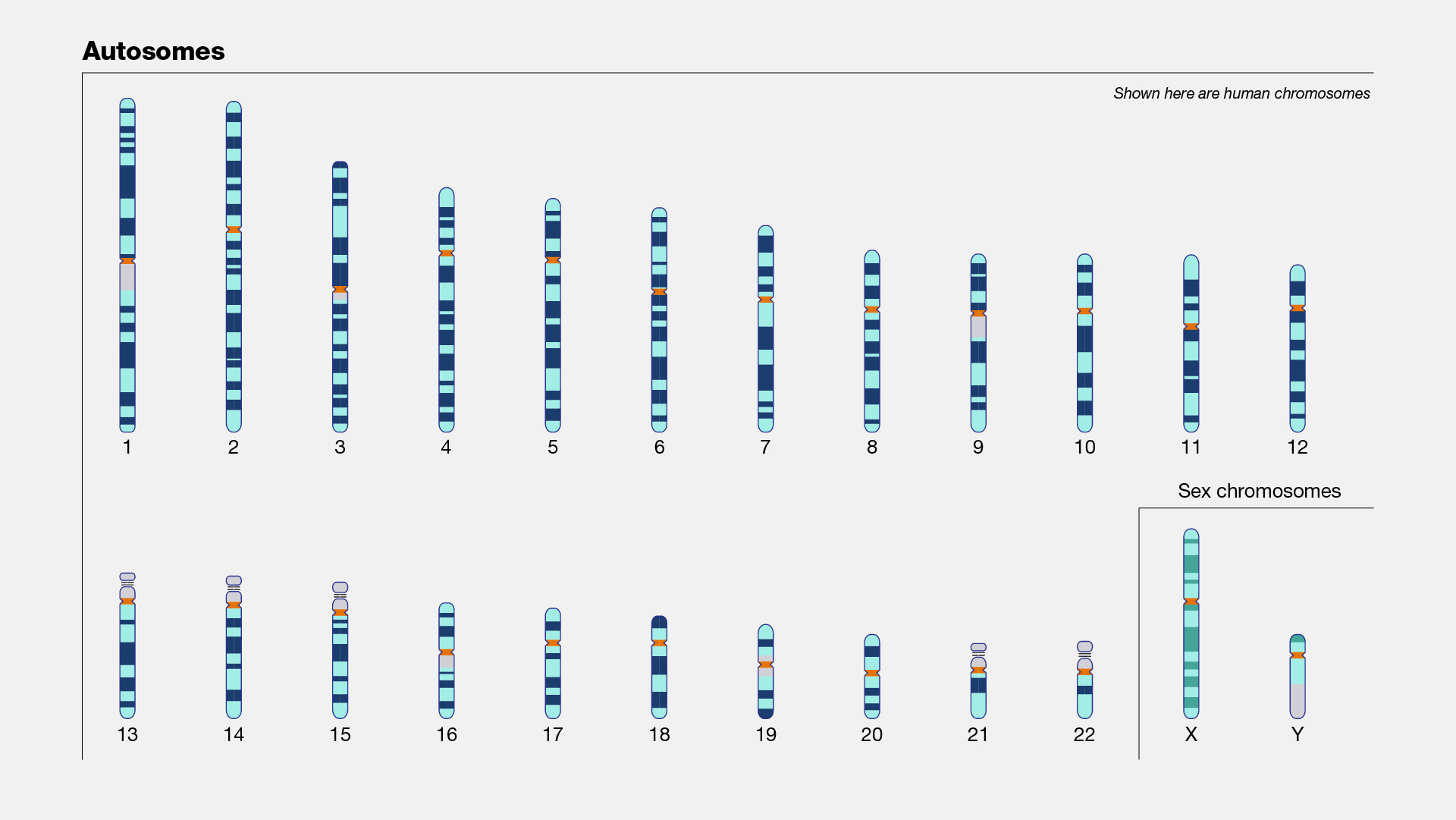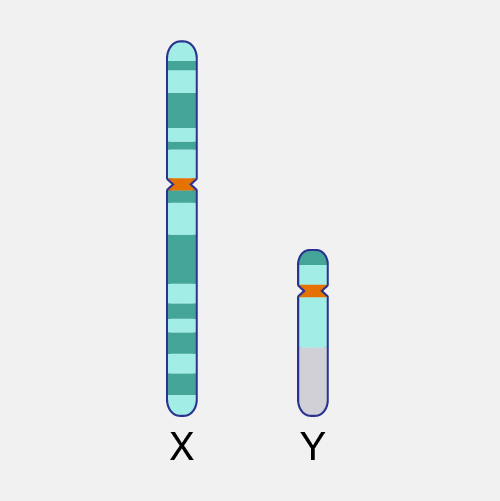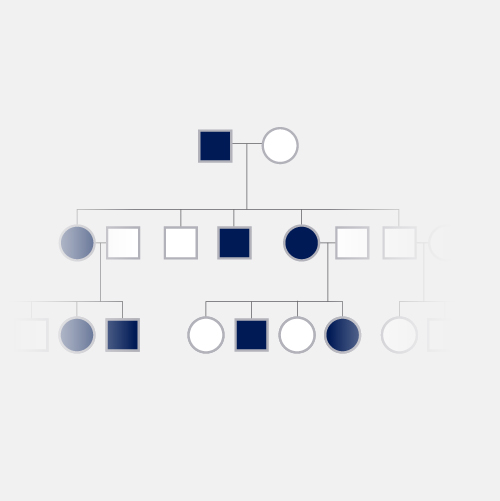
Autosome
Definition
An autosome is one of the numbered chromosomes, as opposed to the sex chromosomes. Humans have 22 pairs of autosomes and one pair of sex chromosomes (XX or XY). Autosomes are numbered roughly in relation to their sizes. The largest autosome — chromosome 1 — has approximately 2,800 genes; the smallest autosome — chromosome 22 — has approximately 750 genes.

Narration
An autosome is one of the 22 numbered pairs of chromosomes that most of us carry in almost all of the cells of our body. We actually have a total of 23 pairs of chromosomes in these cells, for a total of 46 chromosomes, but two of those are referred to by letter rather than by number and are called sex chromosomes rather than autosomes, since they--that is the X and Y chromosome--help determine what sex, or gender, we are. The 22 pairs of autosomes are referred to by number basically in inverse correlation with their size. That is, Chromosome 1, with the smallest number, is actually the largest chromosome. It has almost 3,000 genes on it. And we go down to the smallest chromosomes, the ones with the largest numbers. You think that would be Chromosome 22, since we have Chromosomes 1 through 22, which only has about 750 genes, but in fact Chromosome number 22 is not the smallest of the autosomes. We thought it was when it was first described, so that's how it got named 22. It turns out that Chromosome 21 is actually a little bit smaller than Chromosome 22.




